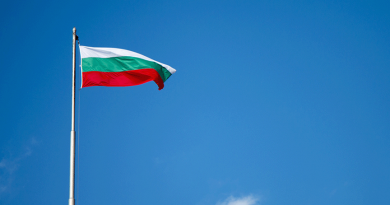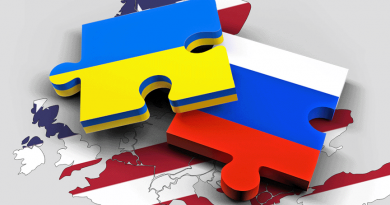The grand energy bargain Europe needs to defeat Putin
Ben McWilliams is a Research Analyst, Simone Tagliapietra and Georg Zachmann are Senior Fellows, at Bruegel, the European institute for economic policy
Europe finds itself in the middle of a perfect energy storm. Over the last months, three overlapping shocks were pushing the European Union into the worst energy crisis it ever experienced.
The first shock affecting global energy markets is an after-effect of the pandemic. During the peak of the COVID crisis in 2020-21, oil and gas investments sharply declined, resulting in a profound energy supply-demand imbalance once global energy demand quickly bounced back. Hence all fuel markets in virtually all corners of the world experience scarce supplies and high prices.
Next came the Russian shock, which started well before the invasion of Ukraine on February 24. Russia has been manipulating European natural gas markets since summer 2021 by substantially reducing exports and not refilling Gazprom-owned storage sites in the EU ahead of last winter.
Since spring this year Russia used its remaining supplies as leverage to push individual countries to relax sanctions on financial transactions and technology – by reneging on long-term supply contracts that were considered sacred by European partners. By the beginning of July, Russia is now only sending one-third of previously anticipated volumes.
As a result, gas prices in the EU have exploded more than tenfold and governments are nervously trying to protect consumers against this price shock by handing out billions in subsidies.
Finally, a series of unlucky coincidences have worsened Europe’s already tight energy situation. Corrosion problems have pushed France to shut down half of its nuclear power plants, increasing the need for gas in power generation.
Moreover, a severe drought has drained European rivers and lakes to extremely low levels, compromising not only hydropower generation, but also thermal plants that require cooling as well as coal-fired power plants that rely on waterways to deliver coal.
As a result of these three shocks, in the coming winter Europe will not have enough energy to meet desired demand. This represents Europe’s greatest systemic risk right now, under both economic and political perspectives.
A disordered energy crisis would not only push Europe into a spiral of economic recession and social tensions, but also expose its political unity to the risk of energy protectionism. This would weaken its foreign policy, and notably its stance against the Russian aggression in Ukraine.
Putin’s strategy to weaken Europe’s support for Ukraine by weaponizing energy is now clear to all. For European leaders not to succumb they must rapidly prepare the counter-offensive for what will be a difficult winter.
Energy security is challenged as never before and some trade-offs with social and environmental goods must be temporarily reassessed
Choices over how to manage limited energy supply will shape the future of Europe’s energy system and have wider political ramifications. If managed correctly, deeper integration and accelerated investments can allow Europe to defeat Putin’s strategy while also pushing the transition toward cleaner and more affordable energy.
To make this happen, European leaders must strike a grand bargain to pool the diverse untapped energy potentials of its member states in order to unwind the Union from the dependency on Russia and lay the foundations for a rapid wave of clean energy investments.
Firstly, all countries must honestly and immediately bring forward every available supply-side flexibility to the European energy market. This will require painful political compromises. German nuclear and lignite might reduce gas dependency on Russia noticeably; Dutch gas fields could contribute a lot; stronger imports from Ukrainian nuclear plants could displace a few percentage points of gas-burn; and temporarily lowering pollution and labour-time standards even in less Russia-dependent countries would help supplies. Energy security is challenged as never before and some trade-offs with social and environmental goods must be temporarily reassessed.
Secondly, agreeing to jointly procure gas on international markets will reduce the risk that member states unity falls apart as they outcompete each other over limited supplies. Moreover, joint procurement promises to lower financial and political cost for the gas and might allow to use pooled gas volumes to provide energy to the most severely hit consumers.
Thirdly, all countries must make honest and comprehensive efforts to reduce demand wherever possible. This requires serious and straightforward communication to the public. Policymakers must explain to citizens that there is an impending trade-off between household energy consumption and the preservation of jobs and peace. Moreover, countries need to ensure that all consumers have good incentives to reduce consumption. European leaders should agree to stop directly subsidising energy consumption and instead subsidise energy reduction. Regulatory tools such as speed limits or changing minimum temperature rules for buildings need to be on the table. Politically unlocking yet untapped energy supply and demand reduction potential in Europe will substantially alleviate energy market pressures.
The fourth crucial element of the grand bargain will be to secure a political commitment to maintain a well-functioning European energy market that ensures that molecules and electrons flow to where they are most needed.
Fifth, European money should be pooled for providing compensation for difficult domestic decisions. Households in Groningen should be compensated for increased tremor risk, and it is not the Dutch government who faces strong incentives for doing so. For terminating Algerian gas contracts and allowing gas to flow into Italy, Spain should be reimbursed the substantial price differential to more expensive LNG. And compensating demand reduction in Southern Europe might also be facilitated by providing joint incentives. Countries most responsible for the current crisis should contribute more.
Sixth and crucially, the poorest in society exposed to energy poverty are more vulnerable than ever and continue to need support. National governments should provide lump-sum transfers or other social aid that does not weaken price signals for reducing energy consumption. Given the massive fiscal imbalances in the EU – the above-mentioned European fund might also contribute.
Finally, short-term imperatives must not detract from the deployment of long-term solutions to reduce fossil fuel consumption. The EU already has ambitious plans, further upgraded by RePowerEU, which will have a chance to function only if Europe manages the coming winter. Programmes for electrification, for the deployment of heat pumps, for structural energy efficiency, for the digitalisation of grids, for the deployment of renewables, for the build-out of low-carbon industrial supply chains, for public transport solutions and for clean mobility should be reinforced.
This European grand energy bargain will ensure that the most dependent economies such as Germany can sustain a winter without Russian gas; that vulnerable consumers in all countries are protected; and that less-dependent countries are politically enabled to shoulder some of the burden.
Such a European solution is the best bet to protect the European institutions – such as the energy and carbon markets – that are needed for a cost-efficient transition to carbon neutrality and to defeat Putin’s energy weaponization.
This article was originally published on Bruegel.




